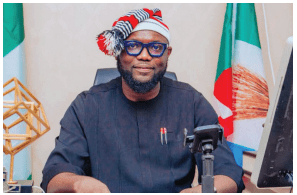Over the years, Nigeria has established several regional and zonal development agencies aimed at driving balanced growth and addressing long-standing inequalities across different parts of the country. From the Niger Delta Development Commission (NDDC) to the North-East Development Commission (NEDC), the South-East Development Commission (SEDC), and the River Basin Development Authorities, these bodies were created with noble intentions: to bring development closer to the people and stimulate regional transformation.
Yet, decades later, many of these regions still struggle with poor infrastructure, abandoned projects, and underdevelopment, despite the billions of Naira allocated annually to these commissions.
The recurring question, therefore, is: Why are the outcomes so poor despite the similarities in their mandates and objectives?
Shared mandates, fragmented implementation
All these agencies share almost identical goals — promoting infrastructure, empowering communities, enhancing agriculture, and restoring the environment.
However, their impact has been disappointing. The reasons are not far-fetched: Weak monitoring and evaluation systems, little or no synergy between the federal and state governments, duplication and overlap of projects, and a lack of structured oversight mechanisms connecting the National Assembly with the State Houses of Assembly.
These gaps have created a vacuum where projects are often executed without proper supervision, leading to inefficiency, corruption, and wastage.
Bridging the oversight gap
The key to solving these problems lies in democratizing the operations and oversight of regional development agencies. Development cannot be driven effectively from Abuja alone; it must involve the people and institutions closest to the beneficiaries.
State Governments and State Houses of Assembly, as representatives of the people within these regions, should have concurrent oversight powers — not to interfere politically, but to monitor, evaluate, and ensure that projects align with the actual needs of their communities.
Equally important, each region should have a Joint Regional Legislative Oversight Committee, comprising one representative from each State House of Assembly within the region. This body would serve as a bridge between federal oversight and local realities — monitoring project execution, assessing value for money, and promoting transparency and accountability.
Such a committee would report annually to both the National Assembly and the respective State Assemblies, ensuring that projects are not duplicated, abandoned, or mismanaged.
Role of state governments
Beyond legislation, the state governments within each region should provide administrative support, liaison offices, and manpower to facilitate coordination between the agencies and their local counterparts. This would strengthen implementation and enhance intergovernmental cooperation.
When States are part of the monitoring and planning framework, project selection becomes more strategic, data-driven, and relevant to local needs.
Synergy and cross-pollination of ideas
Another major benefit of democratizing oversight is the creation of intra-legislative synergy between the National Assembly and the State Houses of Assembly. This cross-pollination of ideas and responsibilities would foster cooperation instead of duplication, allowing both levels of legislature to complement rather than compete with each other. It also builds institutional capacity at the subnational level and deepens Nigeria’s practice of cooperative federalism.
Learning from global best practices
Around the world, regional development thrives on collaboration and multi-level oversight. In the United States, the Appalachian Regional Commission operates through a federal–state partnership, where each state appoints a representative who jointly determines project priorities and monitors implementation.
Similarly, the European Union’s Cohesion Policy uses Joint Monitoring Committees made up of national and regional legislators to ensure that regional projects are inclusive, transparent, and performance-based. Nigeria’s regional development framework can adopt similar models — where federal and state stakeholders work hand in hand, ensuring that every project is purposeful, equitable, and properly executed.
Beyond Politics: Towards real development
When oversight is democratized and participation is broadened, transparency increases, corruption reduces, and development accelerates. This model will also foster better relationships among state governments in each region, regardless of political affiliation, since shared oversight promotes mutual accountability and collective interest.
In essence, democratizing the operations and monitoring of regional and zonal agencies will ensure that development becomes a shared responsibility, not a federal concession. Nigeria must move from rhetoric to reform.
The laws establishing these agencies should be reviewed to: Give State Houses of Assembly concurrent oversight powers, and mandate the creation of Joint Regional Oversight Committees for periodic evaluation and reporting. This approach will bridge the gap between planning and delivery, empower local institutions, and guarantee that development funds achieve tangible results.
The time has come for Nigeria to build synergy, not silos; to coordinate, not duplicate; and to govern development, not politicize it. Only then can our regional development agencies truly deliver the transformation they were created to achieve.
· Hon. Chisom Ojukwu is a member of the Imo State House of Assembly, representing Nkwerre State Constituency.















